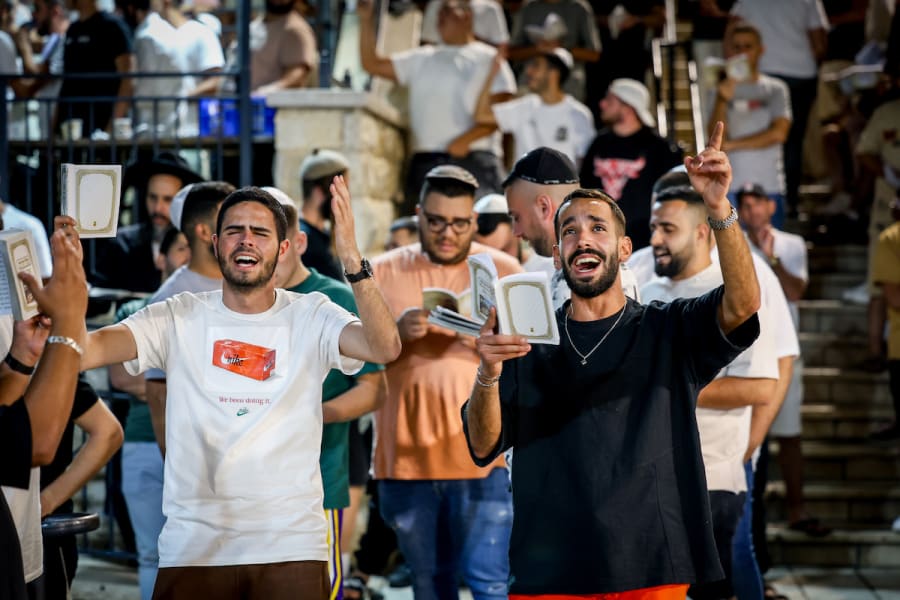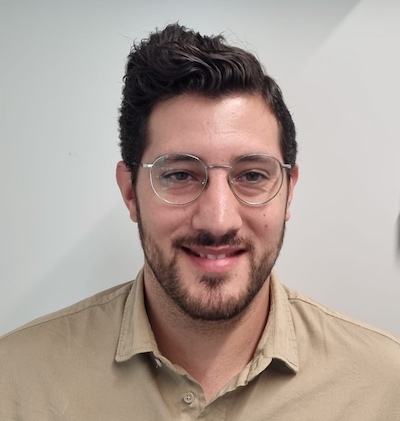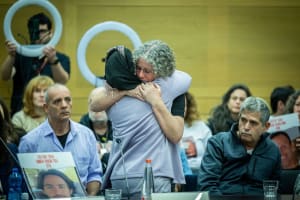What happens in Israel during the time of Selichot?
Leading up to Yom Kippur, thousands of Israelis ask for forgiveness for their sins

Every year, toward summer's end, the same sort of videos make the rounds throughout Jewish online media.
Tens, sometimes hundreds, of thousands of Israelis, are shown gathering at the Western Wall and chanting in unison the melodious Hebrew prayer: “Chatanu lefanecha, rachem aleinu," which means, “We sinned before you, have mercy on us.”
This moving sight signals the start of Israel’s High Holy Days, or Days of Awe, a period of prayerful remorse and atonement, called Selichot.
Selichot refers to both the period leading up to the Day of Atonement, known as Yom Kippur, as well as the special prayer services that are held during this time, considered to be a period of special divine grace.
With the start of the Jewish month of Elul, Sephardic, or Middle Eastern, Jews begin to pray the communal prayers for divine forgiveness called Selichot, typically very early in the morning or, more commonly, late at night.
Their Ashkenazi Jewish brothers and sisters of European descent join them only later in the month, shortly before Rosh Hashanah, the Jewish New Year.
An important part of the liturgy, and one of the reasons for the tradition of nightly prayers, can be found in the Book of Lamentations 2:19 (NIV): “Arise, cry out in the night, as the watches of the night begin; pour out your heart like water in the presence of the Lord. Lift up your hands to him for the lives of your children, who faint from hunger at every street corner.”
The Selichot prayers have their roots in the generation of the “Geonim,” the spiritual leaders of the Jewish community during the early medieval era. Many Jewish communities have since developed their own liturgical versions of the prayer with different lyrics and melodies.
Anyone visiting Jerusalem during this period should take a stroll through the Jewish Quarter in the Old City or the downtown neighborhood of Nachlaot, near the popular open-air Mahane Yehuda Market. You will find these areas teeming with worshippers, many taking part in special Selichot tours being offered around this time.
Jerusalem’s atmosphere during these days is often described as magical or mystical, as worshippers “hop” from synagogue to synagogue to experience the different traditions and melodies of the piyyutim, the melodious Jewish liturgical prayer-poems.
Popular singers and artists, mainly those who are religious or from a Sephardic background, often hold special Selichot concerts, providing their own renditions of the most popular piyyutim, and will often end the event with a Selichot prayer service.
The time leading up to Yom Kippur is seen as a period for personal introspection and repentance.
One startling phenomenon, especially for new immigrants and some (lucky) tourists, clearly illustrates this period.
An example of this happened this September, when Israeli Finance Minister Bezalel Smotrich, who heads the Religious Zionism party, began his speech at a protest by asking the crowd for forgiveness if somebody felt he had harmed them in any way.
Such a move is a common occurrence during the time before Yom Kippur, as religious and traditional Israelis will ask friends, colleagues or neighbors to forgive if they felt wronged by them in any way over the past year.
For some, it can, indeed, be startling to suddenly receive a text from an old colleague, or maybe an old friend from school, who asks you to forgive them. At the same time, it also serves as a charming reminder that Israel, with all of its diversity, indeed, remains a Jewish society.
As believers in Yeshua, Jesus, we can be sure of God’s mercy when we repent and ask for His forgiveness.
Let us continue to keep our Jewish friends in prayer during this period, and ask for an even greater revelation so they may also experience God’s love and forgiveness in their lives.

Hanan Lischinsky has a Master’s degree in Middle East & Israel studies from Heidelberg University in Germany, where he spent part of his childhood and youth. He finished High School in Jerusalem and served in the IDF’s Intelligence Corps. Hanan and his wife live near Jerusalem, and he joined ALL ISRAEL NEWS in August 2022.






